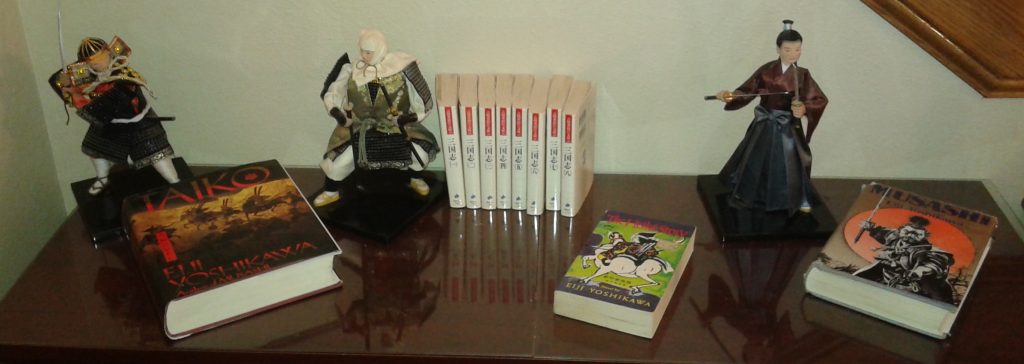
I really enjoy the writings of Yoshikawa Eiji. I’ve already written far too much about Yoshikawa and his writings in my thesis Yoshikawa Eiji’s Three kingdoms as Japanese literature, but in that sort of academic paper there isn’t much opportunity to mention my personal experiences with his writings.
I encountered Yoshikawa by accident. I was at a Barnes and Noble bookstore looking for a Yoshimoto Banana book (a very different author) when I saw a paperback of Musashi (actually, as I later learned, only the first part of the story) and bought it based only on the information on the cover. I often find myself reading multiple books during the same stretch of time, and I remember while reading Musashi I was also reading Foucault’s Pendulum so the two books will always be strangely linked in my brain despite having little in common. I was sad when I reached the end of my incomplete Musashi and so I soon invested in a volume containing the complete text. Since then, I’ve spent many hours reading various writings by and about Yoshikawa Eiji in both English and Japanese.
When I read the literary works of Yoshikawa Eiji, I enter a vivid world with rich characters. Unlike many books where the protagonist is a generic “everyman” or “everywoman” (although typically with a bit of spunk) which take place in the “here and now” or thereabouts, Yoshikawa’s books take place during specific times and places in history centered around actual historical people. Of course there is a lot of fiction filling in the details. In the past I have said that if a person is going to read only one book of Japanese literature, it should be Endo’s Silence. However, typically when I am recommending a book to introduce someone to Japanese literature, I will suggest Yoshikawa’s Musashi.